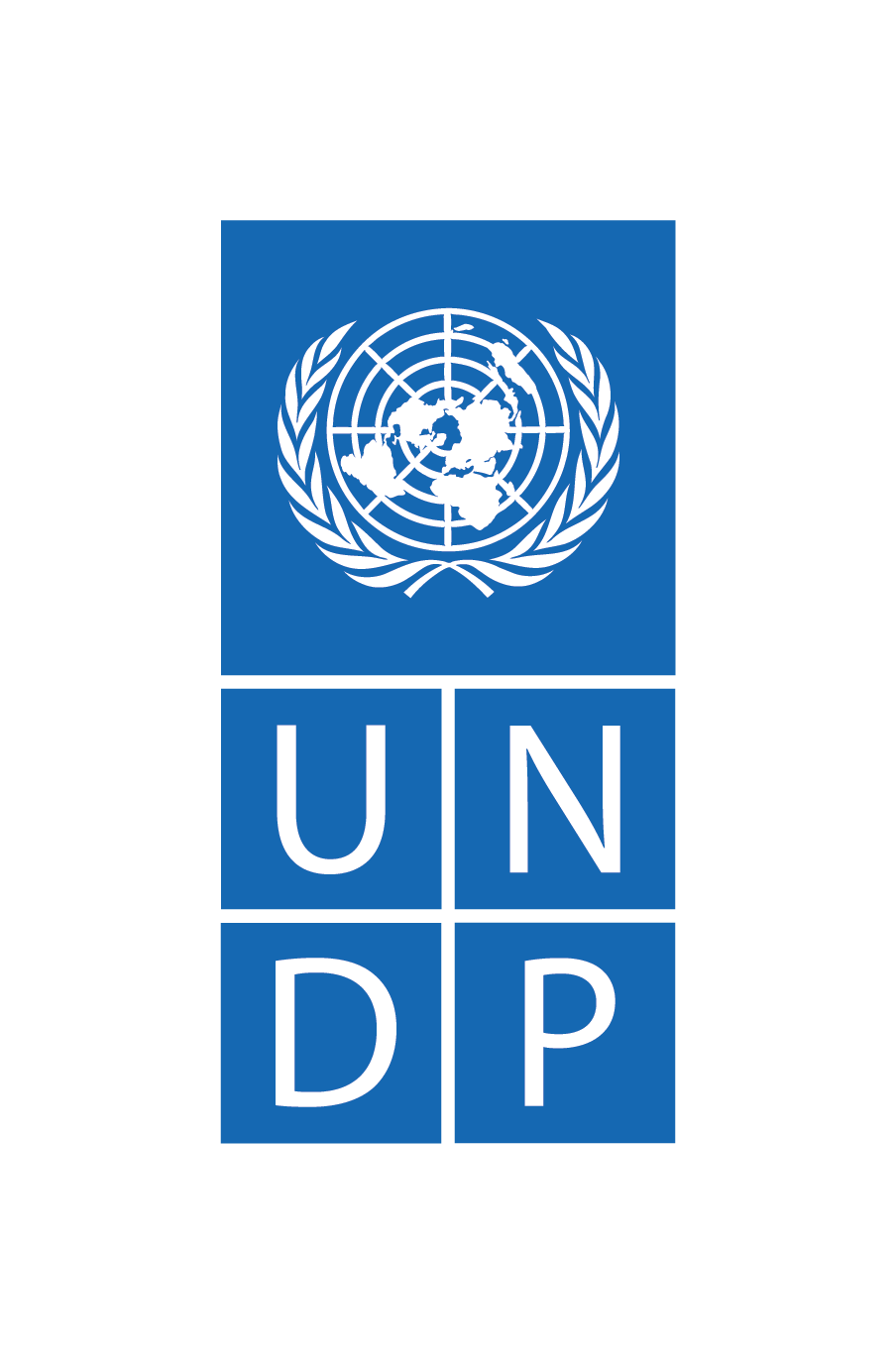The Comprehensive Multisectoral Action Framework for Malaria and Sustainable Development
Despite longstanding efforts and significant investments, the world remains off -track for achieving the Sustainable Development Goal target of ending malaria by 2030. Malaria persists where sustainable development is slowest. Countries with a high malaria burden experience a 1.3% annual loss in economic growth, and their GDP per capita grows up to five times more slowly than in countries with little or no malaria. Inverting the vicious cycle requires new, integrated ways of collaborating; and thinking holistically about development and comprehensive multisectoral action is essential. Conventional malaria interventions are faced with a system challenge. In many settings, the root causes of malaria extend beyond the confines of the healthcare sector, reaching into realms such as social and economic inequities, poor housing, environmental degradation, agricultural practices, and water and waste management. Yet, the global response to malaria has traditionally centered on the health sector and vector control, often neglecting the broader determinants of the disease.
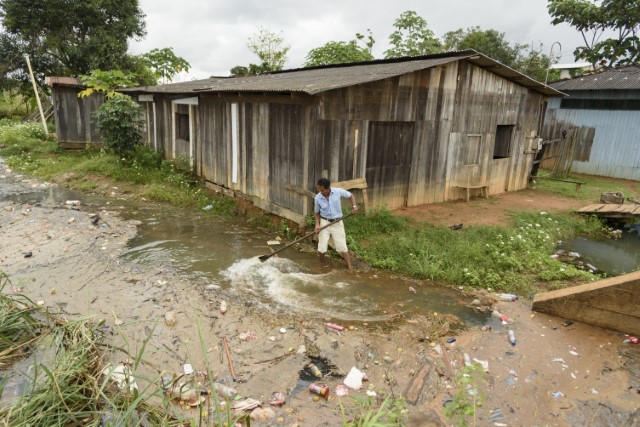
Using data, case studies and practical tools, the Comprehensive Multisectoral Action framework provides guidance for policymakers, programme managers and funders to adapt their approaches to addressing malaria. This framework advocates a shift from a health-sector-centric approach to a comprehensive, coordinated, and multisectoral response. It aims to harness integrated action, commitment, and expertise across key sectors to combat malaria effectively.
Tools and Examples
Pathfinding for Comprehensive Multisectoral Action Tool
The Pathfinder Endeavour is a collaboration between UNDP, WHO, UN-Habitat, the Roll Back Malaria Multisectoral Working Group and others. It aligns directly with UNDP’s Strategic Plan for 2022-2025, emphasizing collaboration across the revitalized UN-system to achieve transformative change.
To achieve the goals of malaria elimination, improved population health, and reduced inequities concerted simultaneous actions across multiple sectors and all SDGs are necessary. This comprehensive multisectoral approach encompasses political, institutional, social, economic, environmental, climatic, and health-related factors that intersect to drive the vicious cycle of malaria. It recognizes that addressing these multifaceted issues calls for collaboration that transcends individual sector interests. It also promotes political, technical, and public accountability through direct and real-time engagement with citizens.
Through this approach, Pathfinder helps unlock synergies and co-benefits across multiple sectors, transforming malaria elimination into a shared responsibility rather than a health-sector-only concern. While selective multisectoral action has been common, there is no universal blueprint for fully integrated efforts. To bridge this gap, the Pathfinder accelerates progress by learning from real-life cases, focusing on areas and populations that are furthest behind, and identifying new ways to collaborate around shared co-benefits that complement existing structures and resources. This comprehensive, multisectoral view is essential to breaking the cycle of malaria and poverty, ensuring that global health goals and sustainable development objectives are achieved in tandem.
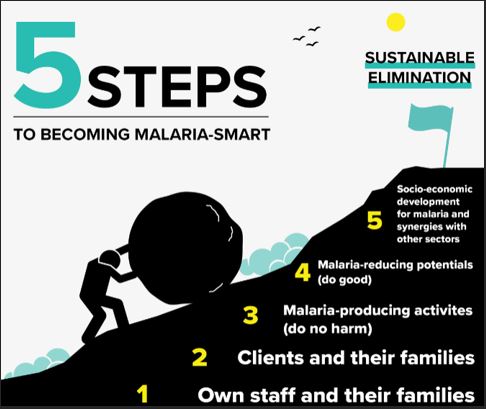
The Pathfinder Endeavour provides a structured process for sustainable results on the ground in real-life situations. The onus is on local systems, governments, and communities in four initial countries with three districts in each that are among the furthest behind in malaria elimination and in achieving the SDGs. The process fosters cross-learning with international peers through the five-step path to becoming malaria-smart, ensuring interventions align with existing structures and resources. Over four phases spanning three years, it facilitates exploration, hands-on experience, and systematic documentation of innovative approaches, paving the way for sustainable results, scale-up, and replication. As of April 2025, the initiative has entered the pre-project phase in four countries – Madagascar, Uganda, Cameroun, and Ghana.
Example of Multisectoral Action
Malaria and poverty are intricately linked, with nearly half of households in malaria-prone areas spending over 40% of their income on healthcare, pushing billions deeper into poverty. Despite new vaccines, progress in reducing cases has stalled, and climate change, conflict, and displacement are worsening the situation. Countries like Sri Lanka, Azerbaijan, and Tajikistan have shown that integrating sustainable development practices with malaria interventions—such as improving living conditions and water management—can drive success. UNDP, alongside key partners, is promoting a multisectoral approach that addresses the root causes of malaria while advancing health, economic, and social development. To meet global targets by 2030, bold, integrated actions and increased funding are essential to create a malaria-free and more equitable world.
Key resources

RBM Multi-Sectoral Working Group
RBM Partnership
Website
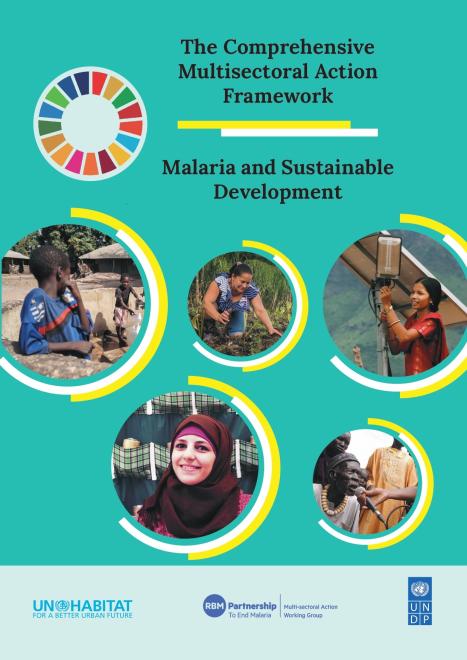
The Comprehensive Multisectoral Action framework – Malaria and Sustainable Development
United Nations Development Programme, UN-HABITAT, RBM Partnership
PDF
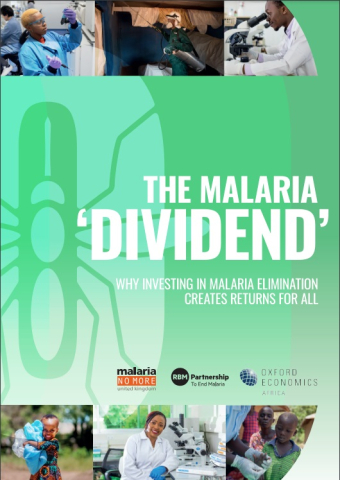
The Malaria Dividend Report
RBM Partnership – To End Malaria
Website
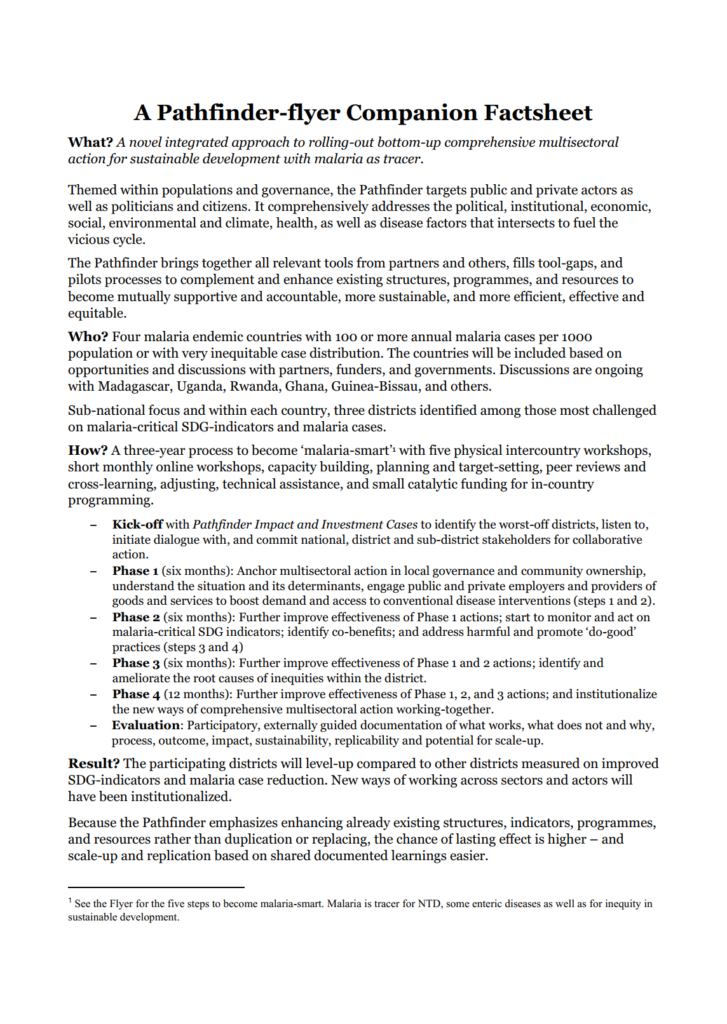
A Pathfinder-flyer Companion Factsheet
The Pathfinder Secretariat 2024
PDF
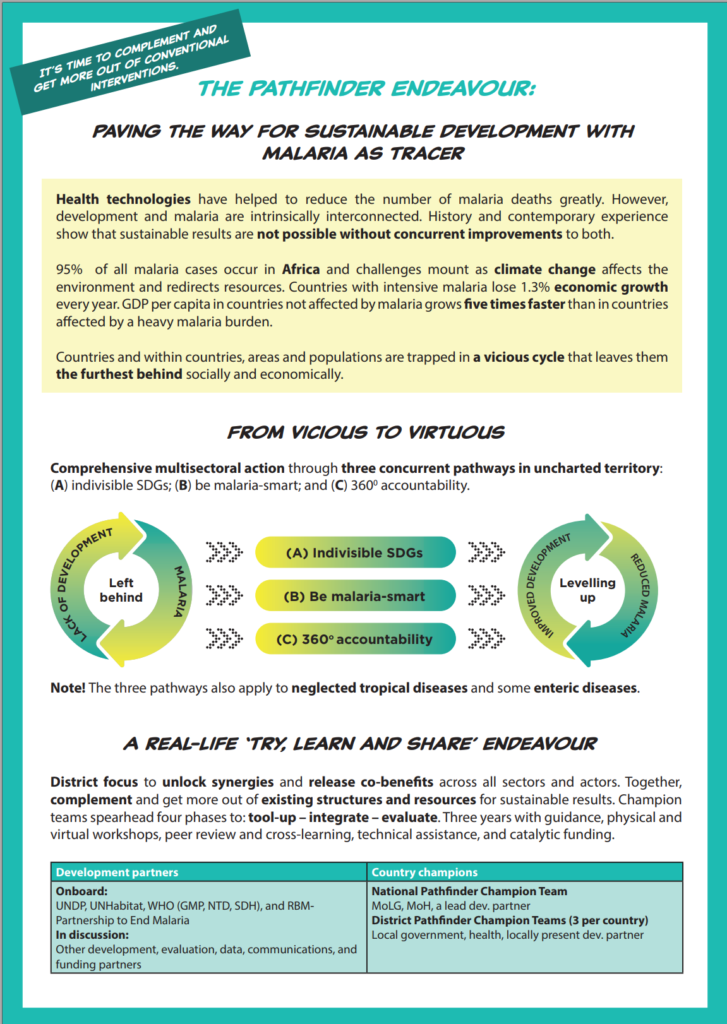
The Pathfinder Endeavour – Flyer
The Pathfinder Secretariat 2024
PDF
